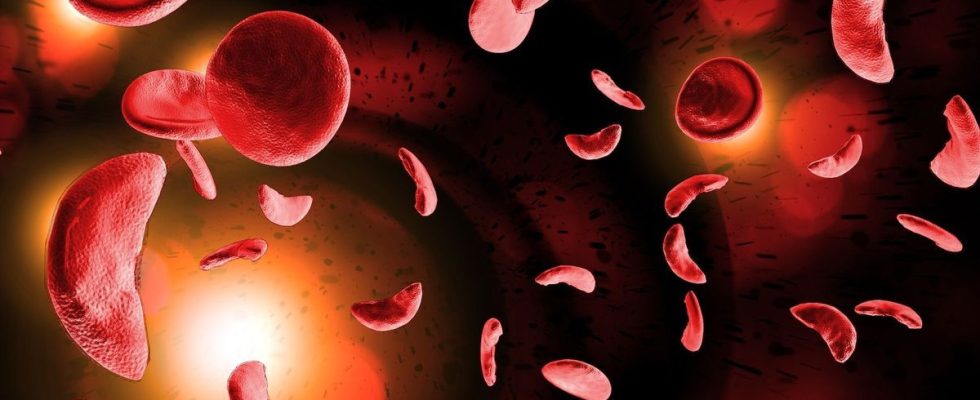Published on
Updated
Reading 3 mins.
On the occasion of World Sickle Cell Day, which will take place on June 19, several doctors and associations are mobilizing to raise awareness about this genetic disease which is still too little known and yet very widespread.
Sickle cell disease is a genetic disease that affects the hemoglobin of red blood cells. It is manifested in particular by anemia, painful crises and an increased risk of infections. With 300,000 new cases per year worldwide, it is the most widespread genetic disease on Earth. Appeared in Africa and India, it is now very present in America, particularly in the West Indies and Brazil, but also in Western Europe due to population movements. In France, the number of cases has increased by more than 50% in 10 years.
Sickle cell disease in France
There are just over 400 births of infected babies each year in France, with inequalities in the distribution of cases on the territory. Indeed, the disease is more present in the territories where the populations originating from Africa, India, the West Indies, Brazil and Western Europe are concentrated. Ile-de-France and the overseas departments are the most affected regions.
Serious symptoms
Symptoms of sickle cell disease vary from patient to patient. They depend on age but also on the severity of the disease. Patients have an increased risk of developing anemia or sometimes serious infections (pneumonia, septicemia, meningitis, etc.). Patients also suffer from “vaso-occlusive” crises (deformed and rigid red blood cells block blood circulation) which cause sharp and violent pain in the bones and joints of the arms and legs.
There is no cure for sickle cell disease. Patient care consists of alleviating or preventing the pain caused by the disease using antibiotics, morphine or preventive medication. Doctors may resort to blood transfusions in case of complications. The only curative treatment is bone marrow transplantation. A complex option to set up, risky and expensive. Neonatal screening for sickle cell disease now makes it possible to set up early treatment for affected children.
The only way to avoid the disease is to screen couples before conceiving a child. Indeed, parents, both healthy carriers of the disease, can have a child with sickle cell disease. “From there, the partners can take their responsibilities: either they decide that love is stronger than anything and take the risk of having a sick child, or they decide to separate. In my case, I would have preferred to take the screening test and break up immediately. Anyway, when the sick child is there, the vast majority of couples tested by the disease in their lives end up separating”declared Pauline Mbaku, president and founder of the French association Espoir de vivre, to our colleagues from France 24.
Concretely, there are other remedies: in families where cases of sickle cell disease have been diagnosed, future parents can benefit from genetic counseling before conceiving their first child (with analysis of their genes to find out if they are carriers of the mutation). If the risk is considered significant, a prenatal diagnosis can be proposed. If the fetus has sickle cell disease, the parents can terminate the pregnancy.
In the event of recourse to IVF, a pre-implantation diagnosis making it possible to avoid the implantation of an affected fetus is possible, but this device is legally very supervised and very cumbersome.
A disease that is not talked about enough
Mother of a daughter with sickle cell disease, Pauline Mbaku regrets that we do not talk more about this disease which nevertheless “kill a lot”. On June 19, the president of the Espoir de vivre association will bring together doctors, patients, association leaders and elected politicians at the National Assembly.
The objective of this day will be to encourage decision-makers to put in place measures to raise awareness about this disease (communication campaigns) and to put more resources into research. “Far too many people do not know about this disease. It is urgent that everyone be made aware of it because it can affect everyone, it is not just a black disease”, hammered the associative activist.
